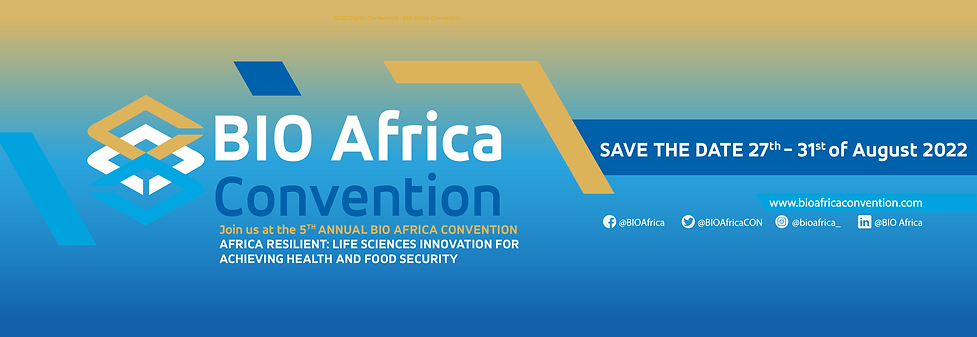The South African Sugar Association (SASA) has a master plan to innovate the industry. (Photo: Supplied)
The BIO Africa Convention taking place at the Durban International Convention Centre from August 27 to August 31 will showcase Africa’s groundbreaking biotechnology innovations in the health, agriculture and industrial sectors.
At the media launch on August 11, President of AfricaBio Nhlanhla Msomi said the huge life sciences conference will bring more than 3,000 international and South African business leaders, entrepreneurs, researchers, regulatory authorities and policy-makers under one roof to gain inspiration and insight from global thought leaders addressing critical topics at the intersection of science, business and policy.
At the top of critical issues that need to be addressed are health and food security as well as mitigating the effects of climate change, Msomi said. Experts would also engage with young innovators who may be more in touch with breakthrough ideas and up to date with the latest technology.

eThekwini: Proud host
Representing the City, Eric Apelgren said the province had taken some hard knocks since Covid-19, including the devastating floods earlier this year and July unrest last year. He said the convention would make the biotechnology sector more attractive to students and the “disrupters” — innovators who disrupt conventional thinking and methods in a positive and dynamic way.
Using the examples of medicinal cannabis and rooibos, Apelgren noted that while Africa has perfect conditions for growing crops, the continent does not get maximum value through the commercialisation of its top-quality products. He said the BIO Africa convention would tackle the question: “What more can we do?”
Bridging the Ivory Tower gap
Mosa Moshabela, Deputy Vice-Chancellor of Research and Innovation, University of KwaZulu-Natal, echoed the previous speakers’ call to engage young innovators and students. He said universities and faculties were moving away from the silos model to focus on the practical implementation of new ideas and technologies.
Moshabela said it was important to ask what happened to students and graduates when they leave universities. He said it was important to follow through as students want to be part of the solution, are energised and poised to take on opportunities.
A sweetener for the sugar industry
A practical example of biotechnology innovation came from the South African Sugar Association’s Cedric Mboyisa. The sugar industry has been facing crippling challenges since 2018, said Mboyisa. The market value of the sweetener is distorted globally making export challenging and expensive. And then Sugar Tax shrunk profits even further, pushing the company into “the intensive care ward”.
Forming multiple task teams, the company came up with the “Sugarcane Value Chain Master Plan to 2030”. Part of the master plan is to create innovative product diversification opportunities, such as biofuel, and undertake versatility studies.
“The sugar industry has to innovate to survive,” said Mboyisa.
Invest in women, invest in communities
Lwazi Manzi, head of the secretariat for the AU Commission on Covid-19, pointed out that the continent’s response to the pandemic was very effective and demonstrates what can be done, although there is a need to build capacity and capability in manufacturing vaccines and biotechnology.
Manzi agreed that young people had fresh and exciting new ideas, and emphasised that enterprises and institutions should also invest in women. She referred to a study that found that women reinvest up to 90% profit back into their communities while men contributed less than 30%. The inclusion of women in leadership and involvement in innovation would lead to economic growth.
Manzi spoke of the importance that Africa produce indigenous and prestigious products and not rely on imports manufactured elsewhere, as was the case with Covid-19 vaccines. The convention would provide a platform and opportunities for governments to invest in projects while having expert panels to explore the return on investment.
Making it happen for Africa
The final panellist was Stravos Nicolaou, Aspen Pharmacare Group’s Senior Executive responsible for Strategic Trade Development. Nicolaou said the Covid-19 pandemic brought inequalities into sharp focus and “some hoped that solidarity would kick in, but it didn’t”. These systemic inequalities need to be addressed.
Nicolaou gave a few tasters of what to expect from the Aspen exhibition at the convention:
- How do we build capacity and capability on the resource-constrained continent?
- How do we embark on regional manufacturing facilities and plants; and sustain these facilities so they do not “become white elephants”?
- Charity starts at home; we need to find complementary and supplementary solutions. We need to understand potential public procurement, which will give the scale of what is possible.
- How do we solve the technology issues? How do we develop technologies across Africa?
- Africa carries the highest disease burden in the world, yet “we are serial importers” of medicines from other countries.
Mapping out the future
Xoliswa Zulu, the Director of University Relations for the University of KwaZulu-Natal, concluded the discussion by saying that “the convention will not only talk to the challenges facing our continent but also provide solutions to those challenges”.
The key themes of the convention are youth, innovation, sustainability and women’s empowerment.
Competition for 200 students to attend the BIO Africa convention
AfricaBio, in partnership with the Department of Science and Innovation, will be sponsoring 200 students to attend the BIO Africa Convention.
Applications are now open. Visit www.bioafricaconvention.com to access an application form or for more information.